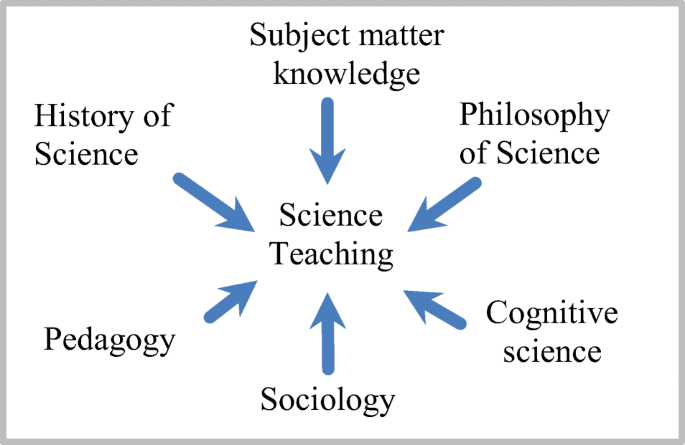Science comes from a Latin word Scientia which means knowledge or any systematic way of recording knowledge. Scientia is derived from scire, which means, to know. Philosophy of science seeks to understand the nature and justification of scientific knowledge and the meaning of science.
There are several definitions of science given. Some of these are: Science is both a body of knowledge (accumulated by the scientists) and a process of acquiring (the way in which they acquire) knowledge. Science is knowledge; it is dynamic knowledge. It involves knowledge (of facts, theories, laws, models and concepts) and a process (method), which develops this knowledge. This leads to discovering or explaining the state of things the way they are and to be able to predict how they are probably going to be in future. Science is a method of exploring and investigating the world around us (natural and generated), the universe (cosmos) in order to deepen understanding.
Science is a systematic observation and classification of natural phenomena in order to bring them under general principles and laws. Science is a way of thinking and acting. It is affected by cultural, social, economic, technological and political Contexts. It demands respect for evidence and involves imaginative cross-referencing, elimination of irrelevancies, and use of evidence to explain events.
Through a series of systematic observations, classification and
experimentation, scientific generalisations, laws and theories are developed.
 |
| Nature and Concept of Science |
NATURE OF SCIENTIFIC KNOWLEDGE
Scientific knowledge is always in continuous change (dynamic). The
knowledge obtained through observation, classification and experimentation
should be viewed as tentative and is subject to further testing and
verification to generate new evidence. Though tentative, it does not diminish
the value of the knowledge already obtained. It is based on evidence that is
public rather than personal (private) and replicable through further
experimentation. The following characteristics may apply to all scientific
knowledge.
(a) Tentative
Even though scientific knowledge is durable, it is
never absolute or certain. When new evidence is found against existing
knowledge, as a result of advancement of technology or old evidence is
reinterpreted in the light of new advanced theory, existing knowledge can be
altered. Further, uncertainty of scientific knowledge is observed because it is
inferential, subjective, creative and culturally embedded in nature.
(b) Inferential
Although scientific knowledge is derived from, and/or
consistent with observations of natural phenomena, it is also inferential in
nature. Observations are descriptive statements about natural phenomena that
are ‘directly’ accessible to the senses (or extensions of the senses). For
example, if we release an object above ground level, we can observe its
tendency to fall and hit the ground. On the other hand, the object tends to
fall to the ground due to the gravity, which is not accessible to our senses
and “can only be accessed and/or measured through its manifestations of effects.
This logical conclusion of the observation is called an inference.
(c) Theory-driven and subjective
Scientist’s’ theoretical knowledge, training,
experience, commitments, religious or other beliefs, political convictions, sex
and ethnic origin can form a mind-set that affects scientific investigations.
Different scientists holding different values engage themselves in different
forms of scientific investigations. Also, these values influence what they
observe (and do not observe) and how they interpret these observations. In
other words, these observations help find answers to some questions, which are
derived from within certain theoretical perspectives.
(d) Scientific knowledge involves human inference, imagination, and creativity
Despite having an empirical basis of scientific knowledge, it involves scientist’s imagination and creativity. Further, scientific knowledge is probabilistic, historic (builds on past data), unique, humanistic (involves creative imagination and product of culture), holistic and empirical.










0 Comments